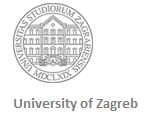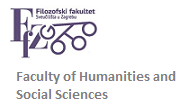Home » 8. semestar – NASTAVNIČKI SMJER – dvopredmetni
Category Archives: 8. semestar – NASTAVNIČKI SMJER – dvopredmetni
Teaching English as a Foreign Language
Course title: TEACHING ENGLISH AS A FOREIGN LANGUAGE Instructor: izv. prof. dr. sc. Renata Geld, dr. sc. Bojan Prosenjak, v. asist., Nives Kovačić, asist. ECTS credits: 4 Status: mandatory Semester: II Enrollment requirements: none Type of classes: 2 lectures + 2 seminars + 2 exercises Course description: The aim of the course is to familiarize […]
Doing research in second language acquisition and language teaching
Course title: Doing research in second language acquisition and language teaching Instructors: Asst. Prof. Stela Letica Krevelj ECTS credits: 3 Semester: II / summer Status: elective
Teaching English as a Foreign Language (archive)
Course title: TEACHING ENGLISH AS A FOREIGN LANGUAGE Instructor: Asst. Prof. Renata Geld, Jasenka Čengić ECTS credits: 4 Status: mandatory Semester: II Enrollment requirements: none Course description: Aims of TEFL; history of TEFL; contrastive teaching of English pronunciation, grammar & vocabulary to different age groups; development of the four skills in EFL; EFL assessment; analysis […]



